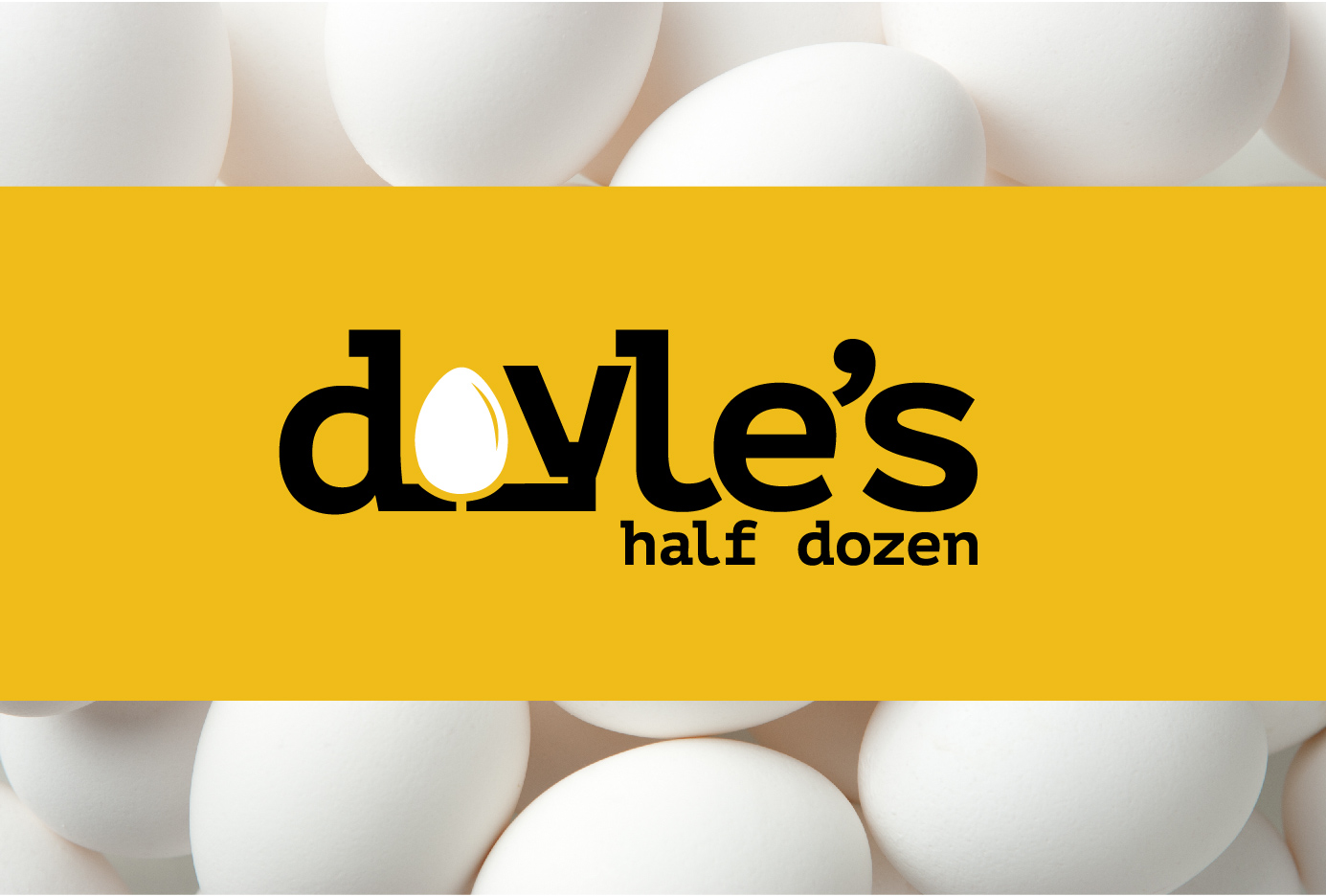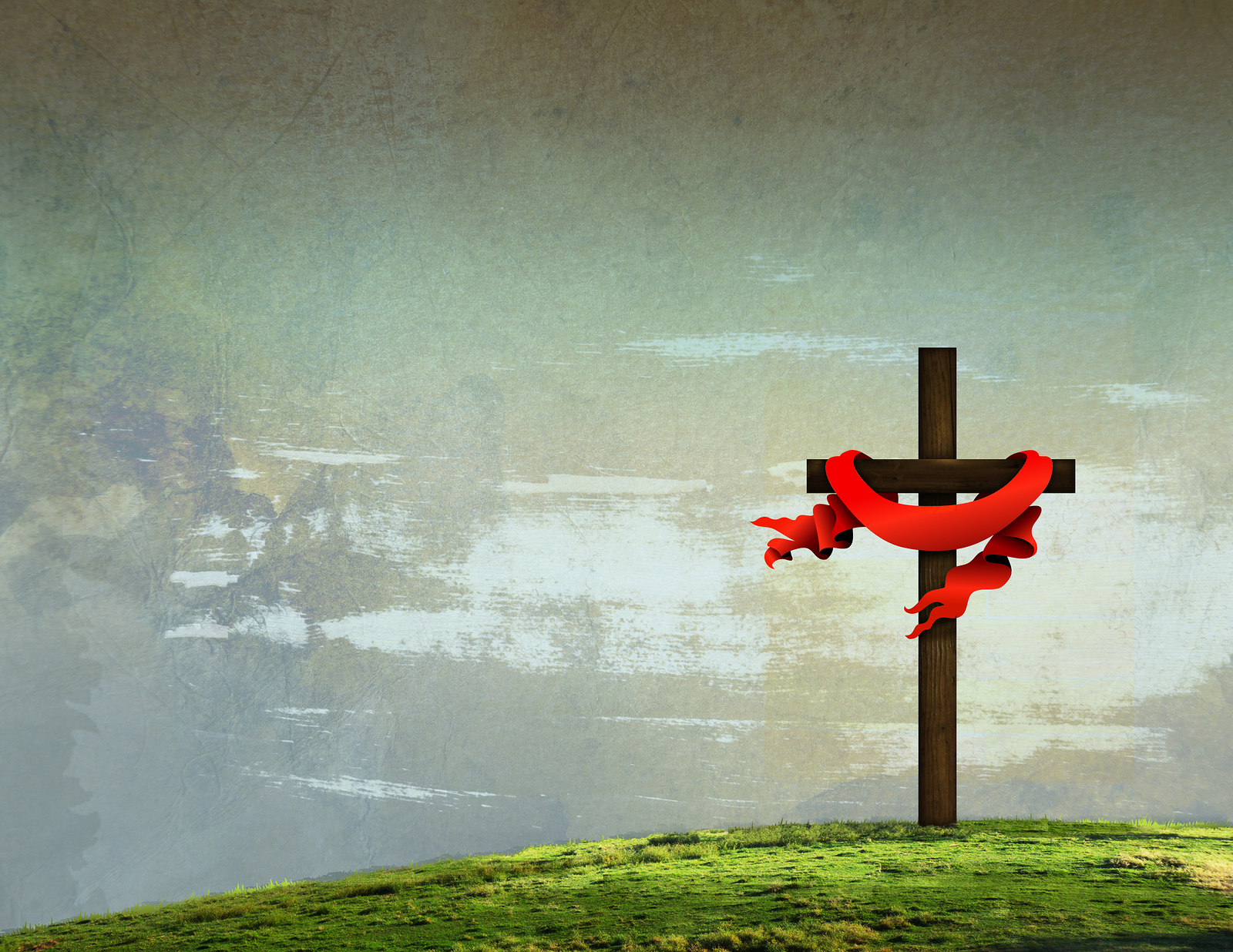
by Chris Doyle | Apr 21, 2017
Greetings!
I’m near the end of my series of takeaways from Bible passages. I’ll finish off the rest of April, and then in May, I’ll go back to timely social topics. This week is another twist. I will be comparing the stories involving the widow of Zarephath (1 Kings 17:8-16) and Ananias (Acts 9:10-19).
Check out the passages if unfamiliar with their stories, but both of these characters have fascinated me – one in the Old Testament, and the other in the New Testament. Here are my six takeaways when looking at both Bible characters.
- Both are unknown and seem insignificant.
We don’t even know the widow’s name, and being a widow with a young son, she probably was not someone who had influence. She couldn’t even find proper wood to make a fire; she had to gather sticks at the village gate (1 Kings 17:10).
Ananias appears to only be known as a disciple (Acts 9:10). We don’t know his livelihood. He may have been a church leader, but that is uncertain. What we do know is God called him.
After the brief passages that respectively feature the widow and Ananias conclude, they return to anonymity.
- Both are asked to do sacrificial tasks.
When Elijah the prophet meets the widow, he asks her for a drink of water, which turns into a request for some bread. This is in the middle of a drought, and the widow doesn’t even have a single piece of bread in the house (1 Kings 17:12). She’s actually in the process of preparing what she has concluded to be the last meal she and her son will ever eat.
Elijah tells her not to be afraid. Instead, he tells her to proceed with fixing the meal, but first make him a small loaf of bread.
Ananias is asked to minister to a man who is known for persecuting Christians. Saul had orders to capture any Christians, but God gave Ananias the imperative to “Go and do what I say…” (Acts 9:15). Of course, we the readers have the luxury of knowing how Ananias’ visit with Saul/Paul turns out, but Ananias believes he’s facing a life-threatening visit.
- Both express doubt initially
The widow responds hesitantly to Elijah’s request for some bread. She said she doesn’t have any bread, and the little resources she has she was planning to use up for a final meal. I conclude she expresses some emotional drama while stating, “I swear by the Lord your God that I don’t have a single piece of bread in the house” (1 Kings 17:12).
I picture Ananias responding emotionally to God’s request. He is well informed about Saul’s reputation and the “terrible things he has done” (Acts 9:13).
I relate well to both the widow and Ananias because I am certain I would have expressed similar emotional doubt if I were in their situations.
- Both did act on faith and obedience
After expressing their skepticism, the widow and Ananias followed their respective orders. Given the grave conditions they both faced – the widow with starvation and Ananias with meeting a man known for persecuting Christians – they acted on their faith and obedience to God, believing He would provide and protect while using them to do important work.
- Both had a major impact on prominent men of God
Elijah is considered the most famous and dramatic of Israel’s prophets. Paul is known to be the most influential man, aside from Jesus Christ, in the history of Christianity. But at the time when the widow cared for Elijah and when Ananias met with formerly Saul, they hadn’t done much in the work God had for them.
No great Christian leader has succeeded without the support of lesser-known people who are also used of God.
- God blesses both the widow and Ananias
The widow was provided with plenty after she made that first small meal for Elijah (1 Kings 17:15-16). We don’t know exactly how Ananias was blessed, but if he was a faithful disciple, he experienced eternal blessings because of the great work Paul did, carrying the Gospel message throughout the world.
Christian blogger Tim Challies said, “Ananias’ small act of obedience led to a great harvest for the kingdom.”

by Caleb Moore | Apr 18, 2017
When I was growing up in church I was involved in Bible Drill competitions. It’s scary to think that I have reached the age where I now use the term, “back in my days….” But alas, here I am.
So, back in my days, we used to have competitions where all the kids would line up in a row, and the challenge was to see who could find a certain bible passage the fastest. This was a way to help us memorize the books of the Bible and also to help us memorize certain verses.
As my memory serves, I was pretty good at this, but it also helped that I knew how to cheat. You see, everyone who found that verse would step forward before the allotted time was up and then one person would be called upon to read it to verify that they had found it. I quickly learned that if I were called upon to read the verse, it would be a few more turns before I would have to read again. So, I could safely step forward and earn points without actually having found that verse.
It’s because of a past like this I am glad we are not saved by works because cheating at Bible Drill seems like a high level crime. In my defense, my parents told me that if I did well in Bible Drill that they would buy me a ninja turtle action figure, and I needed one more to complete my set.
I knew from all those years in church that lying, cheating and stealing was wrong. But the one thing they could not teach me was obedience. Unfortunately, without learning obedience, all the moral teachings I learned couldn’t keep me from being a Bible Drill cheater.
How then do we teach obedience? Well Jesus gives us insight on that in John 14:23 when he says, “If you love me, obey what I command.”
Love comes before obedience. People will obey to some degree if they are motivated by fear, but the greatest kind of obedience is one motivated by love. Love can not be taught, but we can role model what it looks like.
I can teach my children what love looks like by the way I treat my bride. Love is something that has to be seen to be understood. Jesus also said, “They will know you are my disciples by your love one for another.”
This means that people need to be told and shown the love of Christ. We show others what it means to love Christ by loving them the way Christ loved us.
I’m thankful that I grew up in a church that offered programs like Bible Drill, but these programs only tell one side of the story. I continue to learn obedience from all the godly people in my life who love me even though I’m a Bible Drill cheater. I see the fruit of their own obedience and the peace and sound mind it brings them.

by Brent Prentice | Apr 15, 2017
Why can’t you overcome that sin that you keep sinning?
You know, that secret sin, or not-so-secret sin, that always seems to trip you up and causes regret, anguish and despair? The one that you know is wrong, but you always seem to bow to anyway? The one that tracks you and pursues you? The sin about which you have the thought: If only I could just conquer this one particular sin, then I would be good.
How can victory be had over that nagging, leeching, life-sucking sin, and for that matter, other sins?
I wouldn’t be writing this if there were an easy answer. The Bible has a lot to say about this and we must hear and apply all the Spirit-inspired help the Bible has to offer. For sin is deadly and eternally serious. The cross teaches us that. If you don’t think your sin is life and death serious, then you don’t understand the cross and the meaning of what Jesus showed us and did for us. It’s that simple. And we must learn to employ the powerful Passion of the Christ and His Cross if we have any hope of progressively having victory over sin in our lives.
Have you considered how the cross might be used in your ongoing fight against sin?
Think about just a few of the physical, mental, social, emotional and spiritual abuses Jesus endured in his final hours on the earth He created (John 1:1-3):
- (Mark 13:36) Jesus agonized spiritually and emotionally in Gethsemane over His imminent sacrifice.
- (Mark 14:50) He was abandoned by all of His disciples – “And they all left Him and fled.”
- (Mark 14:65) He was punched, slapped and taunted by His own (John 1:11).
- (Mark 14:66-27) He was denied by Peter three times, and this despite the fact that He warned Peter (14:30).
- (Mark 15:1-3) He was lied about and called an insurrectionist – “The King of the Jews”.
- (Mark 15:15) He was used as a political pawn and bargaining chip, and substituted for the convicted murderer and criminal Barabbas, and was scourged. It is necessary to describe the scourging (flogging) that preceded crucifixion to fully understand how much Jesus endured physically. “The prisoner was stripped, bound to a post or pillar, or sometimes simply thrown to the ground, and was beaten by a number of guards until his flesh hung in bleeding shreds. The flagellum consisted of leather thongs plaited with several pieces of bone or lead so as to form a chain. Men who were beaten in this way often collapsed and died by flogging. In some instances, the scouring would expose the entrails and on one occasion, reported by Josephus, the bones of a man were exposed.” (Sources: Danny Akin and William Lane) The beating could be so severe, that some prisoners died from shock before they ever made it to the cross.
- (Mark 15:16-21) He was mocked, physically abused with a crown of thorns pressed down on his head and with a wooden rod.
- (Mark 15:21) He is so physically spent that he can’t carry the traverse beam of the cross to His own death as the soldiers parade Him through the city as a public spectacle, warning all who see that no one crosses Rome.
- (Mark 15:24) And finally “they crucified Him.” That’s all Mark says. Why doesn’t Mark tell us how horrible the cross is? He doesn’t have to tell the Roman Christians that he is writing to because it is a common feature of the ancient world. Mark’s audience knew how horrible it was, but we really don’t. Jesus now hangs, and likely naked, on the ‘slave’s wood’, a ‘criminal’s tree’, a ‘sign of shame’, the ‘infamous stake’, the ‘barren wood’, the ‘terrible cross’ and ‘the most wretched of deaths’, according to Josephus. He was positioned on a hill outside the city wall and was lifted high on a stake so that all would see that He was guilty of high treason (Mark 15:26), and He was executed between two convicted criminals who mock and insult Him (15:27 and 32). While He hangs, battered, exposed and gasping for air, He was continually mocked, ridiculed and maligned repeatedly – even by strangers (15:29).
God ordained that Jesus would come at this time in history, to be executed by the method of the cross. Why? couldn’t Jesus have come at another time and been executed by firing squad, electric chair or lethal injection?
There is surely more than one answer to this question, but there is an answer that will help us in our fight against sin. There is something useful for the everyday fight for sanctification in the punishment that Jesus endured to bring us peace (Isaiah 53:5).
Here it is: THE CROSS SHOWS US HOW SERIOUS SIN IS – IT IS DEADLY SERIOUS. It is grotesquely serious. It is crushingly serious. It is wrathfully serious. It causes injustice that must be dealt with by justice – and Jesus took it for God’s glory and for the ransom of many (Mark 10:45).
So the next time you are hounded by “that sin” and you are harassed by your own fleshly desires, and caving to it feels inevitable, fight and wage war on it by dwelling on the Passion of the Christ and all He endured for you. Develop a mental sensory narrative in your mind that you can play in the moment of temptation. Hear the insults that Christ endured on the day of His death. See the blows and the blood. Put yourself in the place of those who were there. Remember that your sin was there and that you share the responsibility of the cross. Read chapters 14 and 15 of Mark and buy Martin Hengel’s book Crucifixion to study and learn about the details of scourging and crucifixion, and think on the crowd and remember that He bore your sin in His body on the cross, so that you might die to sin and live to righteousness (1 Peter 2:24).
Learn to fight present sin with the finished work of the cross.

by Chris Doyle | Apr 14, 2017
Greetings!
I’m continuing my current theme for DHD in sharing six aspects involving Bible passages. This week it is the conversation Jesus has with Peter on the beach, after the resurrection and initially appearing to the disciples. John’s Gospel account (John 21:15-19) is the only one to feature this powerful dialogue between Jesus and his lead disciple.
- It happened after breakfast
John 21 is a great chapter for Bible study. It’s full of fascinating details. Keep in mind, this is after Jesus has appeared to His disciples and others since He has risen from the dead.
We can read about Jesus’ appearances in all four Gospel accounts. But the one thing about this appearance compared to what we are told about the other post-resurrection appearances of Christ is Jesus made breakfast for his disciples after they experienced another miraculous catching of an abundance of fish.
Verses 1-14 is basically a scene-setter for what Jesus planned to do.
- Jesus calls Peter by his former name
When Jesus meets Peter for the first time, He gave the disciple the name “Peter” (John 1:42). Jesus renamed him to demonstrate a change in character and to make aware of the responsibilities Peter will have.
Once in a while, though, Jesus would go back to calling Peter his birth name, “Simon.” He seemed to do this to get Peter’s attention or to rebuke Peter. I’m guessing it would be in the same vein as when a parent would call his or her child by the child’s complete formal name, “Christopher Neal Doyle! What are you doing?” You get the idea.
- Three times a charm
Jesus repeated his question three times to Peter, “Do you love me?” The first two times, Peter responded “Yes, Lord, you know I love you.” The third time, Peter expressed some grievance while replying, “Lord, you know everything. You know I love you.”
A common interpretation of Jesus asking Peter three times if he loved Him was to symbolically reconcile Peter after Peter denied Jesus three times in public while Jesus’ trial was happening.
I love the word “reconcile.” It demonstrates that wonderful result when making peace with someone or removing a hindrance that stifles a relationship.
Jesus is all about reconciliation, which is why He came to earth to die, so that our sins would be forgiven and we as followers of Christ could be reconciled with God.
So the formal inquiry in triplicate was not just for Peter’s sake, but for all who were aware of Peter denying Christ three times.
- The significance of sheep
Jesus uses symbolic sheep often in his teaching. He calls himself The Good Shepherd (John 10:11). He tells the parable of the lost sheep (Luke 15:3-7). But here, Jesus commands a fisherman to become a shepherd.
It’s interesting the comparisons of Jesus first telling his disciples to follow Him and He will make them fishers of men (Matt. 4:19). Now, he tells Peter, in particular, to take care of his sheep.
It seems as though fishing is a description to describe evangelism and shepherding relates to discipleship. Both are equally important in the Christian life.
- Revealing the death Peter would die
After asking Peter three times if he loved Him, Jesus, in verses 18-19, makes a powerful revelation:
“’The truth is, when you were young, you were able to do as you liked and go wherever you wanted to. But when you are old, you will stretch out your hands, and others will direct you and take you where you don’t want to go.’
“Jesus said this to let him know what kind of death he would die to glorify God. Then Jesus told him, ‘Follow me.’”
History reveals Peter was crucified, and he chose to be crucified upside down because he did not feel worthy to die in the same position of his Lord.
- What happens to Peter after this experience
Peter would go on to preach at Pentecost (Acts 2:14-42), which results in the powerful beginning of the early church. What fascinates me is this great Biblical moment occurs in just a short time after Peter’s denial of Christ.
This tells me that God can do great things through whomever He chooses, even a follower who failed.
But for God to use Peter, He had to bring him to reconciliation. And that’s what Jesus did for Peter, after breakfast.

by Brian Hobbs | Apr 14, 2017
Once at a children’s Sunday School about Good Friday and Easter, I saw a lesson that talked about the “Sad Day” (Good Friday) and “Happy Day” (Easter Sunday). This was an interesting and telling way to teach Good Friday and Easter Sunday to children.
I also have become aware of a popular poem, “It’s Friday—But Sunday’s Coming,” which depicts the heaviness of the crucifixion over and against the glory of Christ’s resurrection.
While there are great truths in each of these, it could make it seem odd to call Good Friday “Good,” and might even seem to suggest “Good Friday” is a “Bad Friday.”
This made me wonder, why do we call it Good Friday? I’m no theologian or church expert, but it appears there is some debate. According to one article, “Some sources suggest that the day is ‘good’ in that it is holy, or that the phrase is a corruption of ‘God’s Friday.’” After even more research, it appears to me we do not definitely know exactly where Good Friday gets its name.
What we do know is that on Good Friday, we commemorate, celebrate and recognize the atoning work and agonizing crucifixion of the Lord Jesus Christ, the Son of God. The Bible says, “God made Him who knew no sin to be sin on our behalf, so that in Him we might become the righteousness of God” (2 Cor. 5:21). And on the cross, Jesus proclaimed, “It is finished!” (John 19:30).
Therefore, Good Friday is not merely a sad day (though it is that). Good Friday represents the finished work of Christ, paying for our sins, which is central to the Good News. Without recognizing the full aspects of Good Friday, we could miss out on the full joy of Easter Sunday and Christ’s resurrection from the dead.
That being said, I am extremely encouraged to see many Evangelical churches start to embrace the Easter week more fully. In times past, you would be fortunate to see the average Evangelical church mention Palm Sunday, perhaps put on an Easter musical at some point and then skip right to Easter Sunday. As a result, many Christians skipped over an opportunity to recount and call to mind Christ’s atoning death on the cross.
These days, you will find many churches having a Palm Sunday service, a Holy Thursday communion service, a Good Friday service and, of course, worship the risen Savior on Easter. As Christians, this is truly our highpoint of the year, and we should take every opportunity we can to worship the Lord Jesus.
To that end, I recommend we not downplay or miscast Good Friday as “Bad Friday,” but instead fully embrace it and commemorate the day on which the sinless Son of God Himself died for sinners like you and me. And so done, our hearts will be primed and ready for Easter Sunday, on which we proclaim to the world, “Christ is risen. He is risen indeed!”

by Amy Spear | Apr 13, 2017
Do ever feel like you are fighting a never-end/hopeless battle? Like each push of the accelerator, your wheels dig deeper and deeper with no hope of ever breaking free. I have and I’m sure many of you can relate.
The Old Testament has story after story of people who realize they were fighting the wrong battle, and when they got to that realization, they had a choice to make. Do I keep fighting my way, or do I fight God’s way?
In 2 Chronicles 20 we read about a king named Jehoshaphat. At the beginning of his reign he removed all the Ashtoreth poles (idols) from the land of the Israelites and brought worship back to God. He didn’t walk the straight and narrow, but he did remember God was his salvation. He cried out to Him in times of distress and tried to follow God.
At one point during his reign, three different nations joined together to attack King Jehoshaphat. “Jehoshaphat was afraid, and he resolved to seek the Lord. Then he proclaimed a fast for all Judah, who gathered to seek the Lord” (2 Chron. 20:3-4)
In such a time of desperation, King Jehoshaphat stood before the people and proclaimed their dependence upon God. He didn’t run to the army officials and great warriors in his army to make a plan of his own, he didn’t sit it stubbornness doing nothing, and didn’t even run and hide to save himself. He went to God. He went to God in front of the whole nation of Israel.
“This is what the Lord says: ‘Do not be afraid or discouraged because of this vast number, for the battle is not yours, but God’s. Tomorrow, go down against them. You will see them coming up the Ascent of Ziz, and you will find them at the end of the valley facing the Wilderness of Jeruel. You do not have to fight this battle. Position yourselves, stand still, and see the salvation of the Lord. He is with you, Judah and Jerusalem. Do not be afraid or discouraged. Tomorrow, go out to face them, for Yahweh is with you’” (2 Chron. 20:15-17).
Wait…. You want me to what? You want me to go, position myself before the attacking army and just stand there, not fight!? That doesn’t even make sense Lord! If I just stand there they will surly kill us!
It’s at this point that the king had a choice to make. Do I fight this battle my way or do I obey and fight this battle God’s way?
King Jehoshaphat chose to fight God’s way. Let’s see what the outcome was.
“In the morning they got up early and went out to the wilderness of Tekoa. As they were about to go out, Jehoshaphat stood and said, ‘Hear me, Judah and you inhabitants of Jerusalem. Believe in Yahweh your God, and you will be established; believe in His prophets, and you will succeed.’ Then he consulted with the people and appointed some to sing for the Lord and some to praise the splendor of His holiness. When they went out in front of the armed forces, they kept singing:
“Give thanks to the Lord,
for His faithful love endures forever.
“The moment they began their shouts and praises, the Lord set an ambush against the Ammonites, Moabites, and the inhabitants of Mount Seir who came to fight against Judah, and they were defeated. The Ammonites and Moabites turned against the inhabitants of Mount Seir and completely annihilated them. When they had finished with the inhabitants of Seir, they helped destroy each other.
When Judah came to a place overlooking the wilderness, they looked for the large army, but there were only corpses lying on the ground; nobody had escaped” (2 Chron. 20:20-24).
Jehoshaphat not only obeyed, he did it praising and singing to his God. In a twist of fate, God used his worship to defeat the attacking enemy. How amazing is that!
They walked in obedience, with anticipation that their Lord would fight for them. When they arrived at the fight, it was already over! Hallelujah! Praise the Lord! For He is mighty and great! Salvation comes only from Him! Look what He did for us! He defeated the armies before we even got here!
Choosing to fight God’s way doesn’t always make sense to us, but if we will simple obey, He will fight our battles for us.
Seems easy enough right? Well, only if God’s way makes sense in our finite brain, but how many times does that happen? For me, never! He is always asking me to take a step of faith to do something that seems ridiculous.
But, when I do, He shows up and makes the ridiculous, remarkable; the unfathomable, unbeatable! What I thought was a stretch for any one’s imagination turn to reality before my eyes. Yet again, I am reminded, He is the God of the universe! All things, all situations, all circumstance, bow before His thrown. We must simply obey what He has called us to do and He will do the rest!




